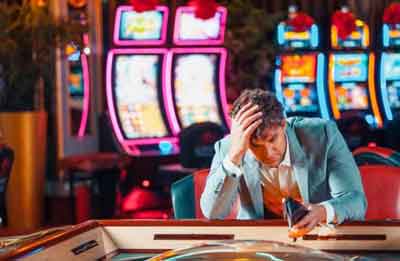According to reports, about 86% of American adults take part in gambling at some point in their lives. This isn’t surprising because gambling is a fun activity for many.
However, as gambling continues to see numerous participants, many find themselves addicted to it. Gambling can quickly go from a fun activity to an unhealthy obsession. This is when it becomes a problem when it cannot be controlled.
What Is Gambling Addiction?
Addiction is a compulsive behavior where a person can’t stop themselves from performing an activity (in this case, gambling) regardless of the consequences involved.
Gambling addiction can lead to many problems in a person’s life, including financial ruin and relationship problems. It may also cause harm to a person’s physical and mental health.
Meanwhile, quitting gambling can be very challenging when it has become an addiction. A report shows that 5.57 million people in the USA had a gambling disorder in 2012, and it is now one of the prevalent behavioral addictions.
Helping Your Loved One Overcome Gambling Addiction
Many people with gambling often live in denial, making it difficult to seek help independently. It’s usually left to their loved ones to help them recover.
Therefore, if you notice your partner has a gambling problem, try to help them. Don’t cover up or deny the existence of addiction in your partner. Admitting that your partner has a problem will help you focus on finding appropriate treatment.
In this article, we will be sharing seven steps to help your partner overcome addiction.
1. Identify the Signs and Symptoms
Not everyone that gambles has a gambling addiction. The main difference between typical gambling and a gambling problem is that one can be quitted easily. People with gambling problems have no control over their whims to gamble even if they know the impending consequences.
Understanding gambling addiction and its symptoms are essential to help your partner. You can do a little research on gambling addiction to identify the symptoms, triggers, and the best way to approach your partner.
Some common symptoms of gambling addiction include;
- Keeping gambling a secret
- Lying about gambling
- Financial hardship due to gambling
- Relationship woes
- Social withdrawal
- Lack of motivation and concentration because so much energy is put into gambling
- Stealing to fund their gambling activities
- Verbal and physical abuse in severe cases
2. Talk To Your Partner
If your partner has a gambling problem, you need to understand that it’s not a moral failing but rather a health problem.
The next step after identifying a gambling problem is talking to them. Communicate with your partner about their gambling problem without being judgmental or confrontational.
Some tips for effective communication with your partner include;
3. Get Them to Accept Their Gambling Problem
Ask questions about your partner’s gambling activities and get them to accept there is a problem. This is important because the first step to recovery is accepting losses and understanding degenerate gamblers can never learn how not to lose shirt at a casino.
4. Let Them Know How Their Gambling Is Affecting You
Talking to them may also involve telling them how you feel about the situation and how their gambling affects you.
Maybe their gambling affects the finances, hurts their relationship, or even causes them to engage in criminal acts. Meanwhile, it’s important not to center the conversation about your feelings. Talk about their feelings too, but let them know their gambling addiction consequences.
- Enlist Help
There’s no guarantee that your partner will talk to you or listen to you about their gambling addiction. This doesn’t mean you should ignore them. Every form of addiction is associated with shame, and so often, people who live with gambling addiction keep it a secret from their partner.
If your partner refuses to listen to you or denies having a gambling problem, you may enlist others’ help. This may be other respected family members, friends, religious leaders, and even a professional health provider.
5. Seek Professional Help
You need to understand the importance of treatment for gambling addiction and help your partner understand. If you suspect your partner has a gambling problem, encourage them to seek help from a professional.
A professional will assess the extent of the gambling addiction and develop a treatment plan based on their need.
Popular treatment programs for gambling addiction including:
- Cognitive Behavioral Therapy
This form of counseling helps identify and address the root of one’s gambling problem.
- Medications
Some drugs help reduce gambling addiction symptoms and underlying conditions the gambler may have.
- Support Group
Self Help Groups are known to facilitate recovery. You can help your partner find support groups consisting of people with similar problems. You may also attend with them to show support.
6. Set Boundaries in Managing Finances
As much as you want to support your partner, do not encourage their gambling behavior in any way.
Don’t enable your partner’s behavior by covering their losses or funding their gambling addiction.
Also, ensure your finances and the family’s finances are not at risk. You can even consider managing their finances until they get enough control to manage their money.
7. Show Support
Once you understand the complexity of gambling addiction, it will be easier to empathize with your partner.
Be patient with them as recovery may take time, and they may experience relapses even after treatment. Help them through their treatment and work together to identify and manage their gambling triggers.






No Comments